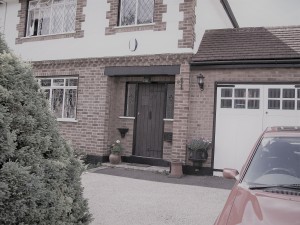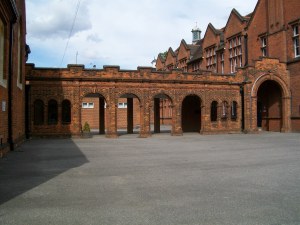If I look back, I can see two or three chance happenings in my early years that defined the course my life was to take. A meeting with Lionel Took when I was thirteen was the first.
So who was he, and what happened?
Well, I’d been trying for a while to get somewhere with playing a rather odd, junior-size guitar that my parents had given me for my eleventh birthday. My elder brother Martin played also, with friends of his, but though he was always quite encouraging in a general sense, there wasn’t really a role for me in their group, so I had rather a lone struggle.

Lionel Took was a friend of Martin’s, who lived nearby. One day in the Autumn of 1964, he just happened to come round to our house, but Martin was out – although his guitar must have been leaning against a chair in the living room. Lionel was interested in folk music and, for whatever reason, he just decided to fill in the time as he waited for Martin by showing me a few things on his guitar – like how to play finger style, and how to play the introduction to The Animals’ version of “House of the Rising Sun”, (a sort of all-purpose beginners package, back in the day). And if Martin hadn’t been out that afternoon, or had come back earlier…..the whole story might never have happened.
As it was, I never looked back. I pestered my mother until they got me a proper guitar for Christmas (well, Christmas and birthday combined, in fact, because it stretched the budget a bit, but I got the guitar at Christmas anyway), my grandparents chipped in with a harmonica as their contribution, I made a harness – so that I could play the two at the same time – out of a converted wire coat-hanger, and I was away, with a song about a fox and a goose, if my memory serves me. It seems that at some point during the years that followed I conceived the idea, without telling anybody else or even letting my conscious mind fully in on the plan, to live my life as a sort of amalgam of “The Autobiography of a Supertramp” and “Bound For Glory” (autobiographies respectively of the Welsh poet W.H.Davies and the American folk singer Woody Guthrie). And after I’d paid my dues to the grand old British Education System, some eight years later, I went off and just did it.

If there was a problem at school, it was that the type of pupil I was, i.e. rather conservative, earnest and hard-working, didn’t fit so well with the type of musician I was trying to be, i.e. into contemporary folk and pop-rock. My teachers were mostly very friendly and helpful to me, but I would have to say that the chief impetus was concerned with getting my arse up the M11 to Cambridge rather than getting myself a career as a busker-songwriter.
And when I did get to Cambridge, I would again have to say that I never really settled in. Considering that I was, as far as I knew at the time, the first person in my family to get to Cambridge; and then understanding how proud they all were of me, and how encouraging they had always been along the way… well, the truth was I couldn’t lightly walk away from it all. And of course, the knowledge that I had successfully competed for my place did give me something to be proud of, even if my music was going nowhere. So it was easier to just immerse myself in the whole collective experience, on the vague assumption that something would work out at some point, rather than admit that I had lost my way, and get out of the gilded cage while there was still time.


Photographs by Matt Moon
I approach my years at Cambridge with a little more humility these days than before – time alters one’s perspective. It was clearly a golden opportunity for a young person to set themselves up for life. It’s just that I wasn’t that person. And I couldn’t see any way to fit in with, nor usefully contribute to, the situation I was in – nor indeed could I even get out of it, as I have already explained. Retrospectively, I’m sorry it all went so wrong – though I hope anybody that I upset back then has recovered from it by now! A lot of water has passed under the bridge in the meantime, and today it seems to me that the years of chronic indecision, wasted though I used to consider them, were all but inevitable.
And so I want to conclude by recording that, at some point after I had started working with Bongo Mike, who was one of the most committed opponents of elitism and snobbery in art that you could ever hope to meet, he said to me that one of the reasons why he had been interested to get me to join with him in distributing poems in the street, and later playing music as well, was that when we had first met, in a squat in Belsize Park in 1973, when I was completely destitute, I told him that I had been to Cambridge University. That’s how hard it is to escape the whole thing – I even got my job as a busker because I’d been to Cambridge!
And as a footnote: I actually became acquainted with “The Autobiography of a Supertramp” because an English teacher at school read it to us in its entirety. I find myself wondering, these days, if it ever crossed his mind that any of us would be inspired to emulate the author.